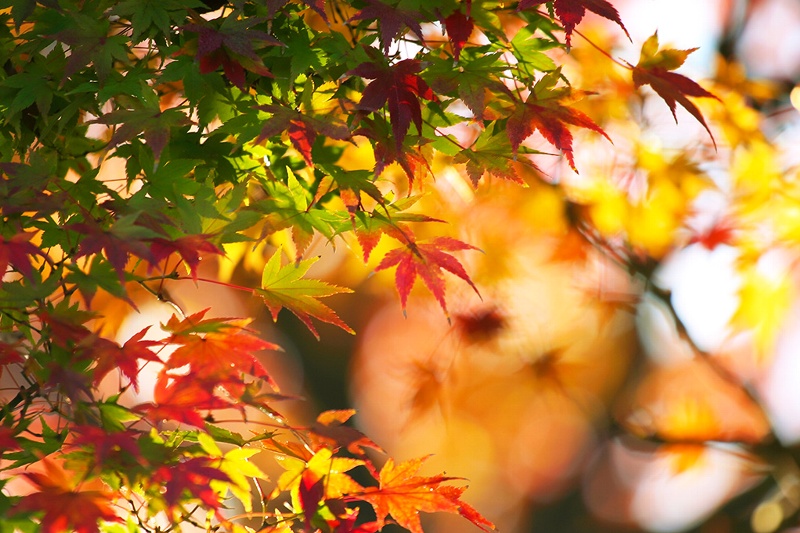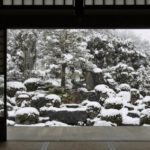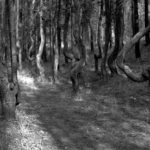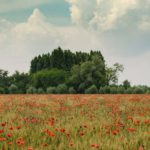Lyricism of Kokinshu is characterized by expressing emotions while singing about nature. Falling leaves arouses a certain kind of sadness. Is it the waning and withering of life? Or is it uncertainty and transience of life?
自然を詠いながら自分の感情を表現すること、それが抒情性であるわけですが、散りゆく葉はある種の悲しさを想起させるのです。それは生命の衰えについてでしょうか。それとも定めなき運命についてでしょうか。
あきかぜに あへずちりぬる もみぢばの ゆくへさだめぬ われぞかなしき
akikazeni aezu chirinuru momijiba no yukue sadamenu warezo kanashiki
The trees let their leaves go
As the autumn winds blow
All adrift helplessly and hopelessly
That’s what I meant to be
Literally:
Leaves fall in the autumn winds without resistance. They have no exact direction. I have no idea where I will go, which makes me sad.
秋の風に耐え切れず散ってゆく紅葉の葉は 行方は決まっていない 自分の運命も同じようにどこへ向かいどうなっていくのかわからない それが悲しい
Transitory and frail nature of life is one of the keys to understand sensitivity expressed in Japanese ancient writings. Autumn brings melancholy. Falling leaves signifies frailty. This is the axiom. The ever-changing exterior of nature such as the leaves withering and falling is often internalized by poets anticipating gloom uncertainty and frailty. “Aezu” here means “without resistance”, or “let go”. It’s no easy to let go of what you have in the face of a challenge, but it’s a state of calmness that you can achieve once you are aware that nothing stays the same and all you need to is just follow the course of nature.
日本の古典文学における感受性を理解するキーワードのひとつが、運命のはかなさです。秋は憂鬱を、舞い散る紅葉ははかなさをが定番です。色褪せ散りゆく姿が、降りかかる定めなき運命を暗示させ、憂鬱をもたらすのですね。「あえず」はここでは「あっけなく手放す」の意があります。困難にあって、手にしたものをあっけなく手放すのはつらいものです。しかし、何事も一つ処に留まらない。自然の流れに身を任せるしかない。そう思えたら達することのできるのが、穏やかさの境地と言えるのではないでしょうか。






